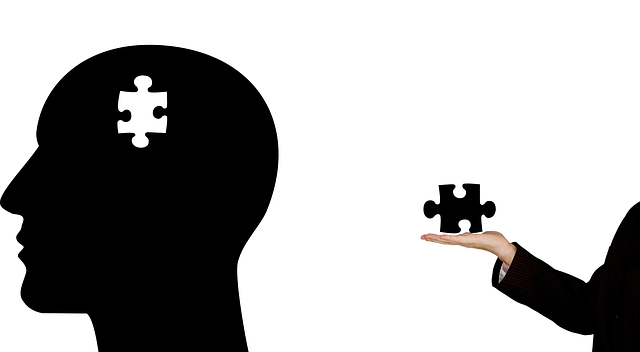Personalized wellness plans integrate physical fitness with mental well-being strategies for comprehensive strength and adaptability. These plans assess individual lifestyle, health history, and goals, focusing on improving current wellness levels. Key components include mindfulness, stress management, cognitive behavioral therapy, and regular physical activity. By cultivating a growth mindset and implementing targeted practices, individuals build inner strength to cope with challenges effectively. Tracking progress and adapting the plan based on data foster lasting wellness habits for optimal physical and mental health.
In today’s fast-paced world, personalized wellness plans are key to unlocking individual potential. Understanding that physical and mental health are intricately linked, this article delves into strategies for crafting tailored programs that foster both strength and stamina. We explore mental resilience strategies as foundational tools for building inner fortitude, alongside practical tips for integrating physical exercises with mindfulness practices. By the end, you’ll be equipped to navigate your wellness journey with confidence and adaptability.
- Understanding Personalized Wellness: Unlocking Individual Potential
- Mental Resilience Strategies: Building Inner Strength and Stamina
- Crafting a Comprehensive Plan: Integrating Physical and Mental Components
- Tracking Progress and Adapting: Sustaining Long-Term Wellness Journey
Understanding Personalized Wellness: Unlocking Individual Potential

Personalized wellness plans are tailored to meet individual needs, recognizing that everyone’s journey to physical and mental strength is unique. Unlike one-size-fits-all approaches, these plans incorporate factors like lifestyle, habits, health history, and personal goals. By understanding your specific requirements, you can unlock your full potential for resilience.
This involves assessing your current wellness levels, identifying areas of improvement, and devising strategies to enhance both physical fitness and mental well-being. Incorporating mental resilience strategies, such as mindfulness, stress management techniques, and cognitive behavioral therapy, can significantly boost your ability to cope with challenges. This holistic approach ensures that you’re not just addressing symptoms but cultivating lasting strength and adaptability.
Mental Resilience Strategies: Building Inner Strength and Stamina

Mental resilience is a key component in navigating life’s challenges and achieving peak physical and mental performance. Building inner strength and stamina through mental resilience strategies involves cultivating a mindset that embraces adversity as an opportunity for growth. This includes practices like mindfulness meditation, which helps individuals stay present and grounded, reducing the impact of stress and anxiety. Additionally, cognitive reframing techniques empower people to change their perspective on setbacks, viewing them as temporary obstacles rather than insurmountable hurdles.
Regular self-reflection and setting meaningful goals contribute to mental resilience by providing a sense of purpose and direction. Engaging in regular physical activity, even during stressful periods, can also boost mood and cognitive function, enhancing overall mental resilience. These strategies work synergistically to foster a resilient mindset that supports individuals in reaching their full potential for both physical and mental wellness.
Crafting a Comprehensive Plan: Integrating Physical and Mental Components

Creating a personalized wellness plan requires a holistic approach, integrating both physical and mental components for optimal well-being. A comprehensive strategy acknowledges that mental and physical health are intricately linked, with mental resilience strategies playing a pivotal role in overall strength and longevity. By combining targeted exercises, mindfulness practices, and stress management techniques, individuals can cultivate a robust foundation for their wellness journey.
Physical activities like regular workouts, stretching, and adequate sleep form the backbone of any wellness plan, promoting muscle strength, flexibility, and cardiovascular health. Mental resilience strategies, such as meditation, deep breathing exercises, or engaging in creative pursuits, help to fortify the mind against stress, anxiety, and depression. Integrating these elements ensures a balanced approach, fostering both physical vigor and mental clarity.
Tracking Progress and Adapting: Sustaining Long-Term Wellness Journey

Tracking your progress and adapting your wellness plan along the way is crucial for sustaining a long-term journey towards physical and mental strength. Regularly evaluating your achievements allows you to identify areas where you’re excelling and aspects that may need more attention. By setting specific, measurable goals and tracking your performance, whether through fitness apps, journals, or other methods, you gain valuable insights into what strategies are effective for building mental resilience.
This data-driven approach enables you to make informed adjustments to your plan. If a particular exercise routine isn’t fostering the mental clarity you desire, it’s okay to swap it out for an alternative that better aligns with your needs and preferences. Adaptability is key in developing lasting wellness habits, ensuring that your journey remains dynamic, engaging, and ultimately successful.
Personalized wellness plans, encompassing both physical and mental health, are key to unlocking individual potential. By integrating tailored strategies like those for enhancing mental resilience, individuals can build inner strength and stamina, fostering a sustainable wellness journey. Adopting these comprehensive approaches allows one to navigate life’s challenges with greater ease, ultimately achieving optimal well-being. Remember that mental resilience strategies are not one-size-fits-all; they are tools to be customized and adapted over time, ensuring a continuous path towards personal growth and enhanced mental fortitude.
